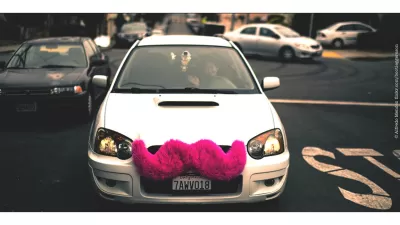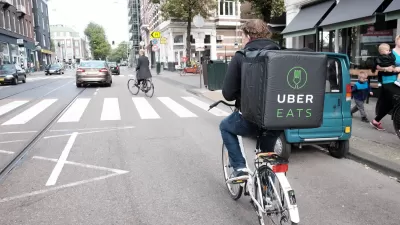Compiled from interviews conducted with city officials, this National League of Cities report gives us a regulator's-eye-view of the sharing economy. Among the topics discussed are equity, taxation, and data transparency.

The sharing economy and peer-to-peer commerce continues to evolve. Recently released by the National League of Cities, Cities, the Sharing Economy, and What's Next is an overview of that ongoing development from the perspective of established city officials.
From the report: "Of the 12 interviews conducted, four officials held positions as a city councilmember, four held positions in offices focused on economic development or special projects, two held positions in offices focused on transit or sustainability, and the remaining two served as advisors to councilmembers or to the city."
Several consistent themes emerged from the research, including:
- Ensuring equity and ease of access, especially in homesharing and ridesharing applications
- Insurance provisions for next-gen "taxi" services like Lyft and Uber
- How and when cities should have access to the data sharing economy companies collect
- What kind of taxes cities should levy on sharing economy transactions
FULL STORY: Cities, the Sharing Economy, and What's Next

Alabama: Trump Terminates Settlements for Black Communities Harmed By Raw Sewage
Trump deemed the landmark civil rights agreement “illegal DEI and environmental justice policy.”

Planetizen Federal Action Tracker
A weekly monitor of how Trump’s orders and actions are impacting planners and planning in America.

Why Should We Subsidize Public Transportation?
Many public transit agencies face financial stress due to rising costs, declining fare revenue, and declining subsidies. Transit advocates must provide a strong business case for increasing public transit funding.

Understanding Road Diets
An explainer from Momentum highlights the advantages of reducing vehicle lanes in favor of more bike, transit, and pedestrian infrastructure.

New California Law Regulates Warehouse Pollution
A new law tightens building and emissions regulations for large distribution warehouses to mitigate air pollution and traffic in surrounding communities.

Phoenix Announces Opening Date for Light Rail Extension
The South Central extension will connect South Phoenix to downtown and other major hubs starting on June 7.
Urban Design for Planners 1: Software Tools
This six-course series explores essential urban design concepts using open source software and equips planners with the tools they need to participate fully in the urban design process.
Planning for Universal Design
Learn the tools for implementing Universal Design in planning regulations.
Caltrans
Smith Gee Studio
Institute for Housing and Urban Development Studies (IHS)
City of Grandview
Harvard GSD Executive Education
Toledo-Lucas County Plan Commissions
Salt Lake City
NYU Wagner Graduate School of Public Service



























